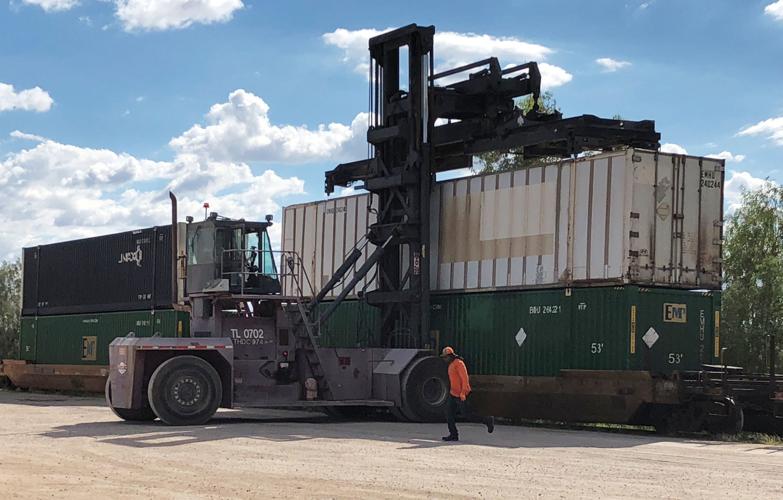The announcement earlier this year that Amazon is building a distribution center at the Port of Tucson has brought renewed attention to the local facility on the city’s southeast side.
Business has been steadily growing at the family-owned port since the recession, with vacancy rates dropping and employment growing, said Mike Levin, the port’s executive vice president.
Since 2010, employment has grown from 15 to 28 people and the vacancy rate for the port’s 2 million square feet of industrial space has dropped from 41 percent to 5 percent.
“Now we even have tours coming out to visit,” Levin said. “Groups of 40 to 50 people come visit, out of curiosity.”
The port, at 6964 E. Century Park Drive, is a certified “shovel-ready” site, which means grading and utilities are in place to expedite build-to-suit facilities for tenants.
Currently, Amazon’s 800,000-square-foot facility is under construction at the port and is expected to employ about 1,500 full-time workers when it opens next year.
The newfound attention to the Port of Tucson has prompted new leases and expansion of existing tenant space, Levin said.
“Now we’re spending more time in Mexico looking both for new tenants and rail customers who want to move bulk items,” he said.
The significance of an inland port in Tucson is major, said Jesse Blum, a broker with CBRE who works to recruit new companies to the area.
“It’s almost hard to put into words how important it is,” he said. “Amazon provided proof-of-concept, and now we’re a place companies want to evaluate.”
Blum and CBRE colleague brokers, Bill DiVito and John Slattery, market the Port of Tucson to prospective companies around the country.
“It takes us from a small, local market to a regional market,” Blum said. “Plus, it’s a locally-owned family business that keeps money in the local community.
“It’s not some real estate REIT (real estate investment trust) out of New York. … They’re stakeholders within our community and that’s something people need to understand.”
BUILDING UP THE PORT
The 22-year-old port was the dream child of Levin’s father, Alan, who bought the vacant land near Interstate 10 and Kolb Road and began constructing spurs off the Union Pacific main line to lure tenants.
In 2004, he opened an intermodal facility for trains to unload containers to tractor-trailers, and the railroad closed its Phoenix site to use the Port of Tucson.
The port received approval from UP in 2013 to service international ocean containers. Before then, ocean containers headed to Southern Arizona had to be trucked from Los Angeles or Long Beach ports directly to the importer, and the empty containers were then returned by truck to the California ports. For exports, empty containers were trucked to Arizona and returned to the Los Angeles or Long Beach ports.
Now the Port of Tucson can service imports and exports without a truck ever rolling on the interstate. It is both a federally designated Foreign Trade Zone and state Enterprise Zone, both of which offer duty or tax benefits within the park.
The elder Levin has mostly turned the day-to-day operations over to his sons, Mike and Matt, as he prefers to be out on a tractor grading land and working on spurs.
During a recent visit, Alan Levin could be seen in a cloud of dust clearing land.
“Anything,” Mike Levin said, “that gets dad out of an office and away from a computer makes him happy.”





